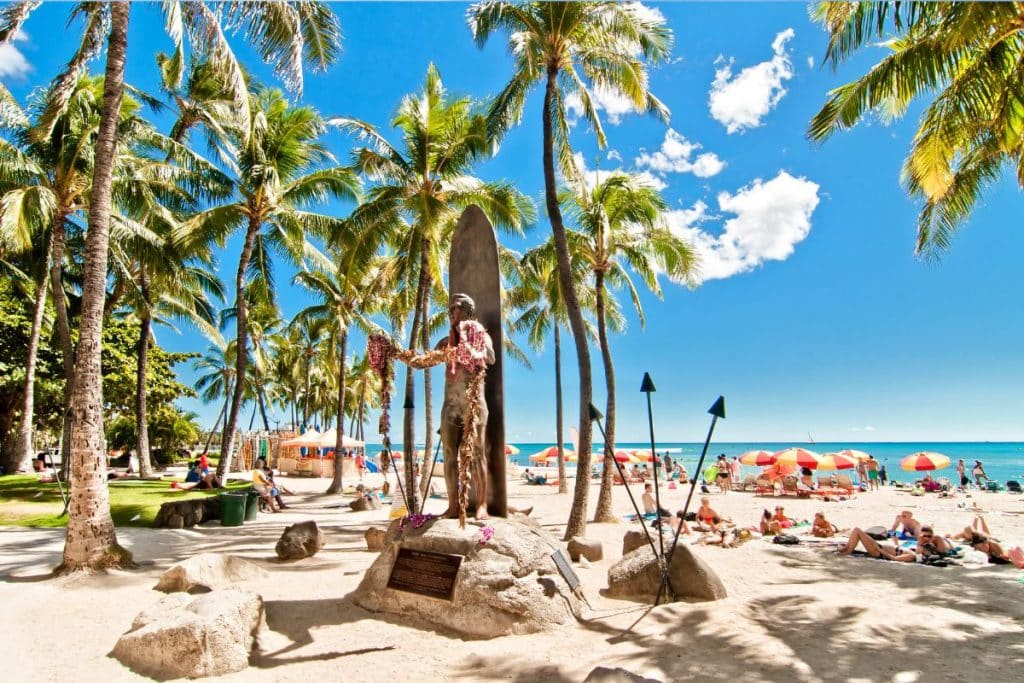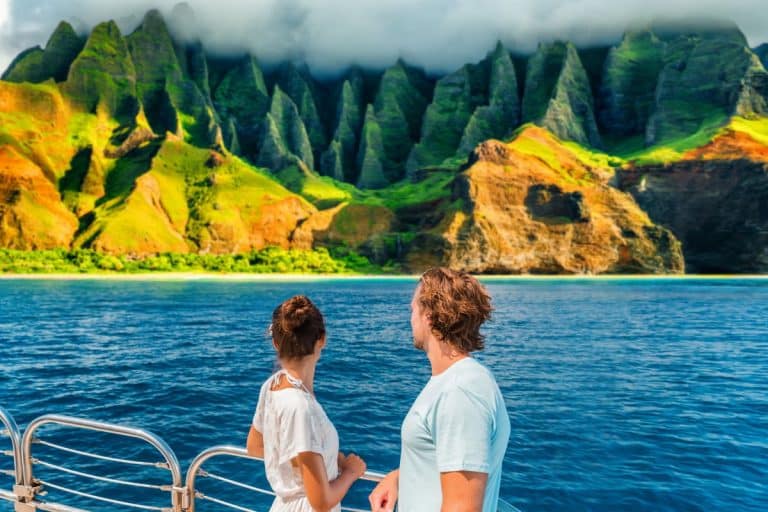Hawai’i is grappling with the effects of tourism fatigue, as the state witnessed approximately 9 million visitors enjoying their vacations in 2022, a figure closely approaching the peak seen in 2019.
While Hawai’i is often seen by visitors as a paradise and a recreational haven, it is crucial to acknowledge that the state is also a thriving community home to over a million residents who live and work there. While tourism plays a vital role in the state’s economy, it is important to recognize that tourist behavior can have negative consequences on the quality of life for residents, the environment, and the overall experience of fellow travelers.
Unfortunately, vacationers often tend to forgo some social conventions they would observe at home since they are so intent on having the best fun possible.
When travelers find themselves in unfamiliar surroundings, among unfamiliar individuals whom they have no personal connection with, it is not uncommon for them to exhibit less desirable traits and behaviors. Disconnected from any sense of responsibility or investment in maintaining the well-being of the community they are visiting, travelers may inadvertently display negative aspects of their character.
Consider these guidelines when exploring Hawai’i.
Follow Local Recommendations
As stewards of their communities and the lands they inhabit, Hawai’i’s natives have valuable insights and advice. If local advice against a particular trail, mentions private land, or warns of dangerous surf conditions, be sure to take their advice seriously. The advice given by locals is usually one of genuine concern and consideration and includes concern for the environment, wildlife, personal safety, and cultural sensitivity. Even if you question their motives, remember that as a visitor you are in their territory and should respect their knowledge and experience.
Abandon Entitlement
A trip to Hawai’i is no small endeavor, involving significant expense, a lengthy flight, and careful planning. However, it’s important not to think of the state as a giant vacation spot designed solely focused on catering to your individual experience. The locals have their own lives and goals and must face the mundane and difficult aspects of life, just like people in any other place. In order to understand and respect the locals, it is important to realize that their lives go beyond the role of serving tourists.

Keep Distance from Wildlife
Hawai’i adheres to both Federal and State laws that restrict certain interactions with marine animals. To ensure the welfare of humpback whales, boats and swimmers must maintain a distance of 100 yards. The endangered Hawaiian monk seal requires a minimum distance of 50 feet, while nursing mothers and young must maintain a greater distance of 150 feet because of the risk of abandonment due to stress. Spinner dolphins are subject to a minimum distance of 50 feet to safeguard their welfare.
In Hawaii, it is illegal to chase after, bother, feed, or pet wildlife. If visitors come across any distressed marine animals on Hawaii’s beaches, they can contact the NOAA Marine Wildlife hotline at 1-888-256-9840.
Don’t Take Unnecessary Risks
Numerous tourists are drawn to Hawai’i for its hiking trails and ocean activities, but their lack of familiarity with the local terrain and conditions can lead to precarious situations. Year after year, hikers and swimmers have to be rescued by local emergency services.
It is important for visitors to acknowledge that the local terrain is unfamiliar to them and, therefore, they must take greater precautions than they would in their home environment. Before embarking on a hike, be sure to verify that trails are open to visitors (permits are required for some) and assess current conditions for safety. Be sure to bring plenty of water and sunscreen. If you feel overheated or tired, it is advisable to turn back.
You should exercise similar vigilance when engaging in ocean activities. Despite the appeal of famous and picturesque beaches, many pose a danger to swimmers due to rip currents and strong undercurrents. Conditions on beaches may also depend on factors such as the time of year or the weather.
It is recommended to stick to beaches with lifeguards during their duty hours. Locals who have grown up in these waters have the expertise to accurately assess the risks. Visitors, even those who come to Hawai’i frequently, may not be as familiar and should proceed with great caution.

